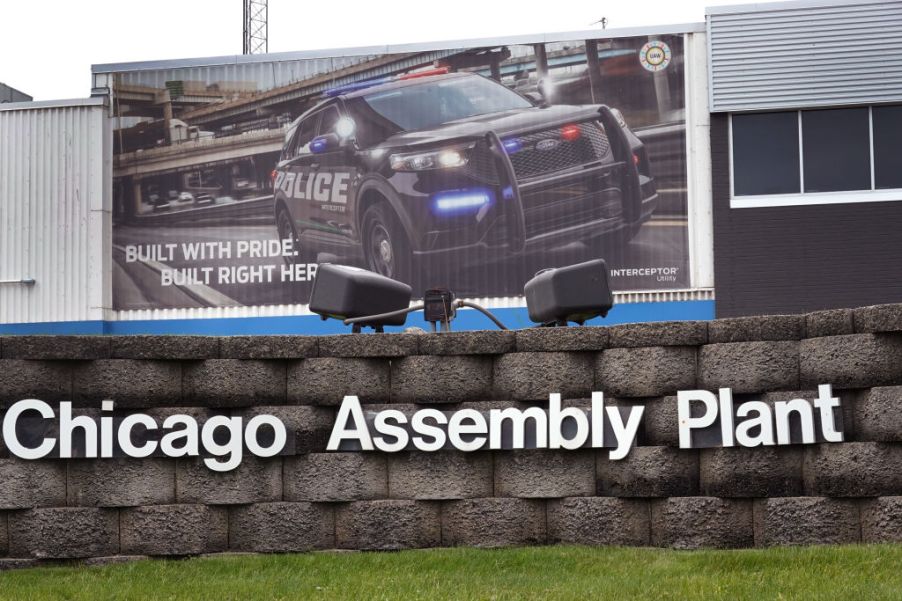
Judge Dismisses Ford Explorer Carbon Monoxide Poisoning Lawsuit From Police
The Ford Explorer is an iconic American SUV in several ways. It was introduced to the world in 1990 as Ford’s first-ever four-door SUV and it’s had many stylish exteriors in its 30 years. Explorers are also notoriously loaded with standard features, and they’re highly customizable — something that makes them perfect not just for consumers, but police departments as well. In fact, the Ford Explorer (technically the Ford Police Interceptor Utility) has consistently been the most popular police vehicle since 2014.
Not all police departments love their Explorers, however. According to CarComplaints.com, a group of Washington State Troopers filed a lawsuit against Ford in August 2019, alleging that defects in their police vehicles were causing carbon monoxide poisoning.
How the Ford Explorer serves and protects
For its Police Interceptor vehicles, Ford takes everything people love about the Explorer to the next level — and then some. There are the super-powerful engines, one 3.7-liter V6 with 304 hp and one 3.5-liter Ecoboost V6 with 365 hp, each more than capable of pursuing suspects at high speeds. When the Ford Explorer becomes the Interceptor, it also gets all-wheel drive and independent front and rear suspensions for superior handling on the road.
Ford gives the Interceptors some heavy-duty upgrades just for the line of work they’ll be doing, including dashboard-mounted swing arms to hold computers, bulletproof doors, and stab-proof panels on the backs of the front seats. While popular sedans have long been used as police vehicles, there’s no denying that the higher seating position and larger cargo and seating areas offered by an SUV are more conducive to police work.
The basis of the lawsuit
In the 2019 lawsuit filed by the Washington State Troopers, 2011-2018 Ford Explorers were alleged to have manufacturing and design flaws that caused carbon monoxide poisoning. Explorer bumpers, tailpipes, rear air extractors, air intakes, and exhaust manifolds were listed as being faulty.
The suit further claims that Ford knew about the problems since 2012 but concealed the information. Plaintiffs pointed to the fact that in 2017 Ford sent out numerous teams of investigators to respond to reports of distinct CO2 smells in police vehicles all over the U.S., and that same year the company issued a complimentary service announcement for over 1.3 million Explorers because of carbon monoxide concerns.
The police officers who filed the lawsuit claimed they experienced a number of symptoms directly caused by CO2 poisoning, including fatigue, nausea, and foggy-headedness. One officer even reportedly suffered permanent brain damage and is no longer able to work.
Case dismissed
U.S. District Court Judge Ronald B. Leighton heard the case in May 2020 and quickly dismissed it. The major issue the judge found with the lawsuit was that there were two separate claims of wrongdoing – fraud and personal injury – but the plaintiffs were treating them as one and the same.
According to FordAuthority.com, Judge Leighton stated, “Given that Plaintiffs never purchased vehicles, the Court is somewhat baffled about what purely economic loss they possibly could have suffered. But this is somewhat unsurprising, as Plaintiffs’ recurring theme in this case has been trying to fit the square peg of fraud into the round hole of personal injury.”
The judge further explained that the plaintiffs provided very few details as to how or when they personally interacted with Ford’s Police Interceptors. Instead, they cited broad consumer complaints and similar cases involving police officers from around the country, including one in Austin, Texas that was also dismissed.
There’s no question that police departments alter and soup up their vehicles. It’s certainly feasible that any damage to the vehicles was unintentionally caused by the departments, rather than Ford. Because of this, along with the broad scope of the lawsuit, the judge determined that a class-action lawsuit was simply not appropriate. After all, only a very small number of officers were affected.


